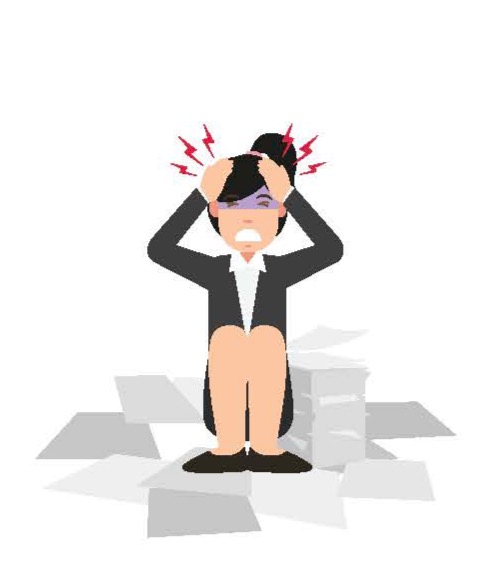COVID-19 has been one of the most devastating public health challenges in recent history. In just six months, it has affected almost every aspect of our lives. The world has been at a standstill, as authorities try to curb the spread of the virus. People have been put on total lockdown, and some have lost their livelihoods. While only some have been infected, the majority if not all have been affected; dealing with a host of unpleasant consequences and symptoms of the disease, loss of loved ones, loss of income, and mental health issues are some of the things that people have had to deal with. Given that the end of COVID-19 is not in sight yet, some of the measures that had been put in place are now being relaxed to mitigate further suffering. Economies are gradually and safely being re-opened to allow people to continue with their lives. Businesses are re-opening, and people are returning to work. Sports and learning institutions, among other places, are resuming activity cautiously to avoid a second wave, which many fear could be worse than the first one.Despite the gloomy situation, there is hope that people can continue with their lives and keep infections low. This gives people courage to move on. One of the biggest problems that people have been dealing with, and is predicted to continue to affect individuals, is mental health.
In a nationwide survey led by University of North Carolina where effects of COVID -19 on mental health were assessed, it was found 90 percent of the United States adults are experiencing emotional distress related to the current situation. With the level of stress and mental health having reached such levels experts are of the opinion that concerted efforts geared towards addressing the problem need to be prioritized.
Although economies are re-opening and incomes might start streaming back in soon for some who may have lost their livelihoods, mental health experts observe that many of the measures to prevent the spread of COVID-19 are causing harm to individuals.
The need for social distancing at the workplaces means that employees will no longer be able to hug each other, sit close to one another, and get assistance that requires people to be physically close to one another, among other things. There are people to whom returning to work means everything, as the pandemic that had thrown them into a world of loneliness and depression was taking its toll. They were eager to return to work and experience a difference, but the situation will not allow it. These workers will need support to remain productive. Employers will have to redesign their workplaces in a manner that caters for such needs while at the same time prioritizing health and safety of the workers. They will need to incorporate plans on how to support mental and emotional wellbeing of employees who may be facing stress, emotional demands, concerns, and issues that have come with the return to work life.
While employers have a role to play to ensure that the return to work is as safe as possible, and issues of mental health are taken into consideration, much of the responsibility is shifted to individuals. They have a role to play in ensuring that their mental health is good and remain productive. They will have to adapt to the changes instituted at the workplace and at the same time maintain some semblance of social closeness with their colleagues. This can be a tall order, but its importance cannot be overemphasized because at the end of the day it influences your emotional wellbeing and provides the support that is needed under current circumstances. A study by Johns Hopkins Bloomberg School of Public Health found that the percentage of people who reported to having psychological distress rose by close to twenty percent compared to what was reported in 2018.
At no other time have people realized the importance of sharing with one another than the today. However, circumstances do not allow it, we must maintain distance with calls being the only form of interactions that can be managed. To cope with the mental health challenges at this time of the pandemic, we will have to continue sharing with our colleagues and providing a shoulder to lean on, though not literally, and be there for one another. People are going through a rough patch in their lives and given that other usual problems and issues in their lives have not taken a break, it is expected that situations may be worse off than ever. This requires workers to check in on one another and be available to those who may be facing serious mental health challenges. Provide emotional support, communicate constantly, and let others know that you are available for them.
If there was ever a time that support groups were crucial at workplaces, it is now—they will provide solace and to some, they may be the only available means to ease the emotional stress that comes with this pandemic. Technology has also allowed people to come together and share their experiences without the need to gather physically. These are tools that will come in handy as people seek emotional support. Employers should encourage such groups to thrive and even provide professional help to those who may need it.
COVID-19 has changed our world, and it has caused great suffering, be it economic, social, or mental. To move on with our lives, in the new normal, we must accept that it will be here longer than expected. We must adapt to the changes and more so prepare ourselves mentally that things are going to be different. As our workplaces change to ensure our safety, mental health might be one of the main concerns. The need to social distance, the fear that comes with thoughts of getting infected and many more will take a toll on our mental wellbeing. To cope with all this, we will need t o talk to others as well provide emotional support to those in need. Years after all this is over, we will look back and see the wonderful things that we did to keep ourselves and others safe, despite the heavy challenges that we faced.
866-HiTouch
CSHiTouch@HiTouchBusinessServices.com
HiTouchBusinessServices.com








